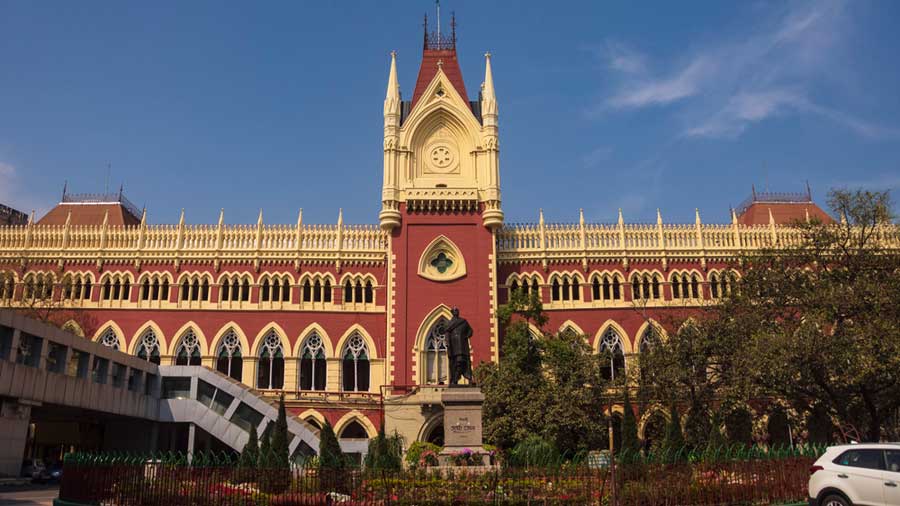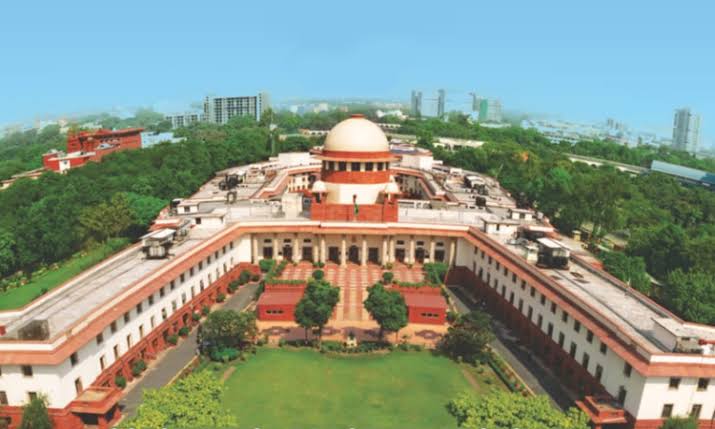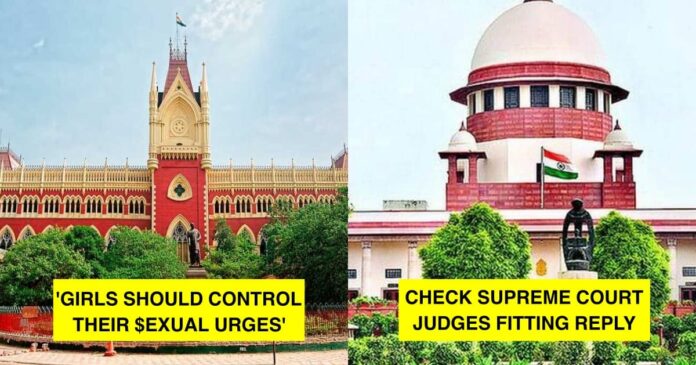In a resounding rebuke, the Supreme Court has criticized the Kolkata High Court for its controversial advice to girls about controlling their sexual desires. This unprecedented critique highlights a pivotal clash between judicial perspectives on gender issues. The active voice underscores the Supreme Court’s direct condemnation, emphasizing the gravity of the situation. The legal arena now grapples with the implications of such statements, challenging established norms and sparking a nationwide discourse on judicial attitudes towards gender sensitivity.

Supreme court backfired on High Court
Criticizing the Calcutta High Court’s remarks, the Supreme Court strongly condemned the advice urging young girls to “control sexual urges” and resist “two minutes of pleasure.” The bench, while issuing notices to the West Bengal government and other parties, expressed disapproval, stating that judges should refrain from expressing personal views or preaching. The Supreme Court deemed the comments from the Calcutta High Court as both “objectionable and unwarranted,” highlighting the inappropriateness of such statements in a legal context.
Responding to directives from the Chief Justice of India, a bench led by Justices Abhay S Oka and Pankaj Mithal initiated a suo motu writ petition under Article 32. This action was prompted primarily by the comprehensive observations and findings made by the division bench of the Calcutta High Court.

“In an appeal against conviction, the High Court was called upon to decide only the merits of the appeal and nothing else. Prima facie, we are of the view that, in such a case, the Hon’ble judges are not expected to either express their personal views or preach.
After having carefully perused the judgment, we find that many parts thereof, including para 30.3, are highly objectionable and completely unwarranted. The said observations are completely in violation of rights of adolescents under Article 21 of the Constitution.”
The bench served notice to the State of West Bengal, the accused, and the victim girl. Senior Advocate Madhavi Divan was appointed as amicus curiae, with Advocate Liz Mathew assisting. The State must update the Court on filing or intending to appeal. Justice Oka remarked orally about doubts on the merits of the conviction reversal, though this matter falls outside the suo motu case’s scope.
Some objectionable observations by High Court
The Supreme Court identified certain problematic observations in the High Court judgment, prompting concern and scrutiny are:
“It is the duty or obligation of every female adolescent to
(i) Protect her right to the integrity of her body,
(ii) Protect her dignity and self-worth,
(iii) Thrive for the overall development of her self-transcending gender barriers,
(iv) Control sexual urge or urges as in the eyes of the society she is the loser when she gives in to enjoy the sexual pleasure of hardly two minutes,
(v) Protect her right to autonomy of her body and her privacy.
It is the duty of a male adolescent to respect the aforesaid duties of a young girl or woman and he should train his mind to respect a woman, her self-worth, her dignity and privacy, and her right to autonomy of her body.”
Sex shall come automatically…
In an appeal by a young boy sentenced to 20 years for sexual assault under POCSO Act and IPC Sections 363/366, the High Court, led by Justices Chitta Ranjan Dash and Partha Sarathi Sen, highlighted the lack of provisions for consensual, non-exploitative relationships among 16-18-year-olds. Upon acquitting the appellant, the division bench stressed the absence of such safeguards in the POCSO Act.

Referring to the Mahabharata’s principle ‘Dharmo Rakshyati Rakshyita,’ the High Court delineated distinct responsibilities for adolescent boys and girls. It emphasized that females must safeguard their rights to body integrity, dignity, and self-worth, urging them to transcend gender barriers and regulate sexual urges. Simultaneously, the court directed male adolescents to actively respect these duties, training their minds to honor women’s self-worth, dignity, privacy, and autonomy.
Stirring controversy, the High Court, in this pivotal ruling, explored the biological basis of adolescent sexual urges. It underscored that while libido is inherent, the normality of sexual urges relies on individual actions. The court classified sexual urges as abnormal and non-normative unless accompanied by commitment or dedication. It noted-
“We do not want our adolescents to do anything that shall push them from the dark to the darker side of life. It is normal for each adolescent to seek the company of the opposite sex, but it is not normal for them to engage in sex devoid of any commitment and dedication. Sex shall come automatically to them when they grow self-reliant, economically independent and a person which they dreamt one day to be, it concluded.”
In June, the Supreme Court, on its own initiative, addressed an Allahabad High Court directive to assess a woman’s horoscope for determining her ‘mangalik’ status.
Read more: UCO bank customers mistakenly receives Rs 820 crores, Here is what happened











